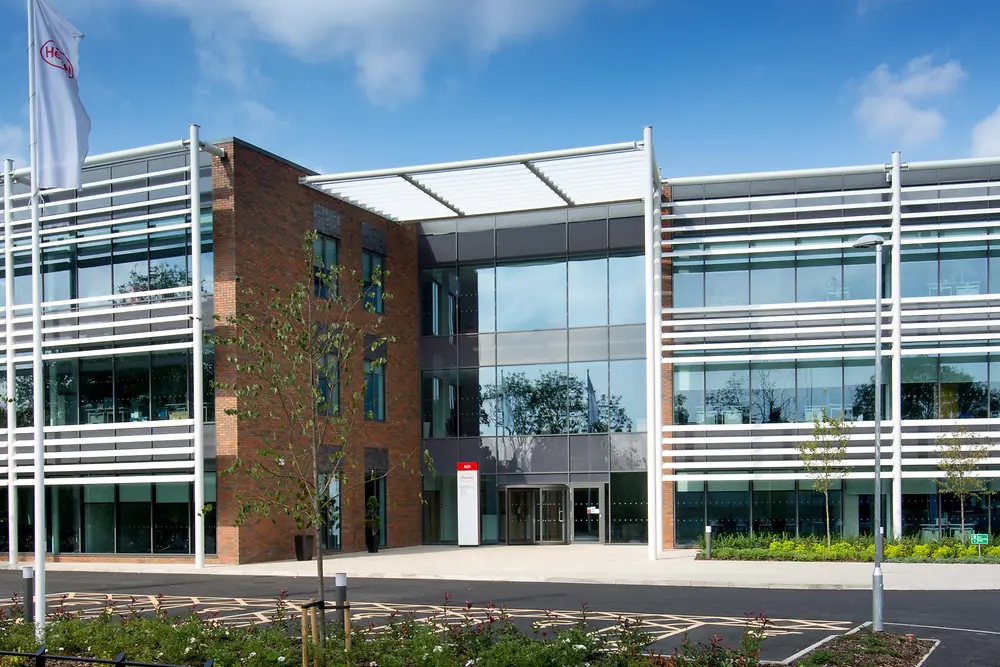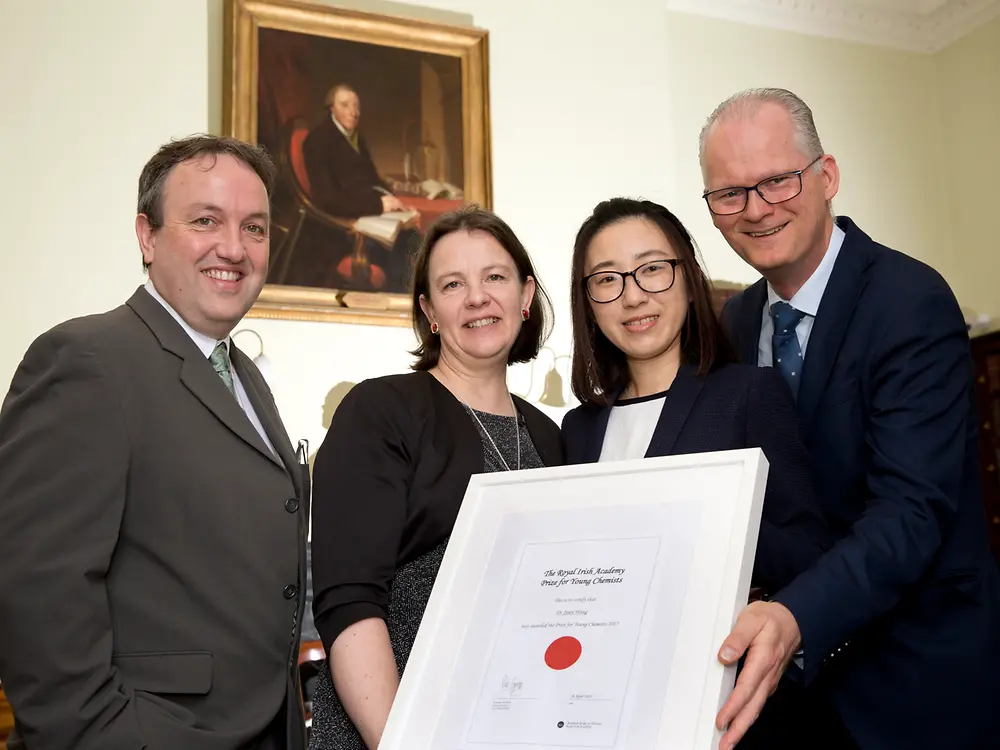Learn more about Henkel Brands & Businesses in UK & Irelands: Includes useful information about the brands, technologies and latest innovations in our business areas: Henkel Adhesive Technologies and Henkel Consumer Brands.
19 Apr 2018
Royal Irish Academy’s Young Chemist Prize Winner Announced
Dr. Junsi Wang, a Ph.D. Chemistry graduate of Trinity College Dublin, has won the Royal Irish Academy’s Young Chemist Prize 2017. The award, kindly sponsored by Henkel Ireland Operations & Research, includes a prize of €2,500 for the most outstanding Irish Ph.D. thesis in the general area of the chemical sciences.
Each year the winner of the Academy’s Young Chemist Prize, is put forward to compete for the IUPAC-Solvay prize. Last year’s winner, Dr. Fergus Poynton, went on to win one of the five highly competitive IUPAC-Solvay International Awards for Young Chemists and to represent Ireland at the World Chemistry Congress in Sao Paulo, Brazil in July 2018. This outstanding achievement demonstrates the strength of Science scholarship in Ireland and the health of its vibrant research community. As winner of the Academy’s Young Chemist Prize this year, Dr. Junsi Wang, will be put forward to compete to represent Ireland for the 2018 IUPAC-Solvay prize which will be presented to the successful recipients at the 2019 IUPAC Congress in Paris.
Dr. Wang is an accomplished, early career chemist who has made an impactful contribution to her research field. She was awarded the Outstanding Graduate Award for her excellence performance from Dalian University of Technology, China. Following this, she moved to Ireland after obtaining a competitive Irish Research Council scholarship to carry out her Ph.D. studies in Trinity College Dublin under the supervision of Professor Sylvia Draper.
Dr. Wang’s winning paper entitled "In search of strong light-harvesting and long-lived Ru(II) and Ir(III) triplet photosensitisers" focuses on a process called upconversion. This has been shown to improve the efficiency of solar cells and to broaden the application of photodynamic therapy in the treatment of certain types of cancer. Her paper describes a body of work in which she designed, synthesized and optimized a series of heavy metal coordination complexes so as to improve their ability to capture low energy (red or yellow) light, and then transfer and convert it into to emitted blue light which is of much higher energy. Her research results have been published in highly-regarded scientific journals and a number have been highlighted or selected as front cover articles because of their impactful contribution to this field.
Dr. Junsi Wang, Ph.D. Chemistry graduate of Trinity College Dublin, has won the Royal Irish Academy’s Young Chemist Prize 2017.





